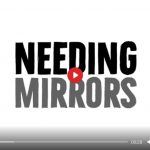
Jesus is likely everything that churches say he is, however, that is very limiting in a practical sense, and not as transformative as experiencing a life with Jesus in our hearts could be. I think we need to expand the definition of Jesus in our thinking to incorporate certain Logocentric character traits and universal standards that dramatically improve our thinking, feeling, and behaviors in a very practical and tangible manner […] Read more »







